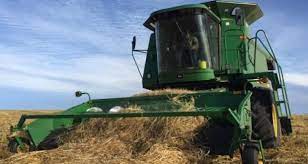Farm safety is not something to take lightly. You may be a professional, but that doesn’t mean you won’t fall victim to an accident. So while producing the best crops and livestock is your top priority, you should put the health and safety of your farmhands first. After all, creating an unnecessarily hazardous work environment isn’t likely to help you retain quality employees. Therefore, keep reading to learn how to keep your farm safe and clean to increase productivity and well-being.
Chemical Storage
Table of Contents
While certain chemicals may be great for your crops, they’re incredibly toxic to your body. Therefore, all hazardous chemicals should be locked up and stored out of reach of children and animals. Additionally, keep lists of dangerous materials present for the fire department in case of a fire or explosion. This way, they’ll know what safety measures to take when entering your land.
Personal Protective Equipment
Since farming can be such a dangerous job, you’ll need adequate personal protective equipment (PPE) to keep you safe while you work. A t-shirt and jeans won’t even make the cut on a small hobby farm. So keep proper attire available for yourself and your workers. Additionally, keep extras on hand for as-needed use. Your daily uniform should include the following:
- Tight-fitting clothing that won’t get caught in machinery;
- Strong work boots with puncture-resistant soles;
- Farm gloves with rubber grips;
- Goggles or protective glasses;
- Respiratory protection;
- Bright clothing so others can see you on the field;
- Hard hats.
Lawn Maintenance
Keeping your lawn trimmed and free of debris is necessary for avoiding accidents. For instance, if you have tall grass, it’ll be hard to see any scraps or rocks lying around that could cause people to trip or the ATV to flip over.
Before mowing your lawn, ensure your tractor or lawnmower is working correctly. Then, look for objects in the yard that are likely to get thrown or cause equipment damage. For the best results, mow your lawn once a week and check for hazards every morning before you start work.
Waste and Scraps
Farming can produce a lot of waste and scraps that many farmers tend to leave in dangerous piles. Unfortunately, these piles present hazards for young children and curious animals. If it gets large enough, the stack could topple onto someone or cause people to trip.
Self-dumping hoppers can help you safely store and transport any waste material or leftover food scraps to avoid safety hazards. If you practice sustainable farming, consider sorting recyclable waste and donating it to other farms in need or charitable construction projects. This will help you build a brand known for being environmentally conscious and caring about the community.
Equipment
We’ve all heard horror stories about farmers getting crushed by tractors or caught in a wood chipper. This is why equipment safety and personal protective equipment are crucial. First, consider adding weights and roll-over protection to your tractor. Then, ensure all children and farm-hands are kept at a safe distance when dangerous equipment is in use.
In addition to safety attachments for farm vehicles, you should check that everyone operating the equipment is adequately trained and licensed. Not knowing how to work a tractor can pose a significantly greater threat despite other safeguards.
Children on the Farm
Children are naturally curious. So if you’re training them to inherit the farm, you should wait until they are competent enough to follow directions and act under pressure in an emergency. In addition, don’t allow anyone under 10 years of age to roam freely on the farmland, near animals, or near dangerous equipment. However, since kids need time outdoors, you should create a safe, enclosed space away from the farm for them to play.
Livestock
Treat your animals with the same respect you treat other humans (or more if you’re not a people person). By keeping them in good health with proper space to roam and exercise, you can prevent disease and injury. Plus, animals tend to lash out when sick or hurt, which presents a safety hazard to you and your workers.
Infrastructure
All farm buildings and storage sheds should be sturdy and safe for use. Then, make sure tools and equipment are put back in their designated spots daily. Additionally, you need to check that all ladders and stairs are secure. If they’re made of wood, properly seal them to prevent splintering and rotting. Finally, check that all gates and fencing are closed and strong to avoid escape if you raise livestock.
Conclusion
Even though farming can be dangerous, there are plenty of safety measures you can take to prevent anyone from getting injured or killed. With up-to-date equipment and protective gear, you’re already one step ahead. Just make sure that all workers and children are aware of the dangers present and are appropriately trained to navigate them.

